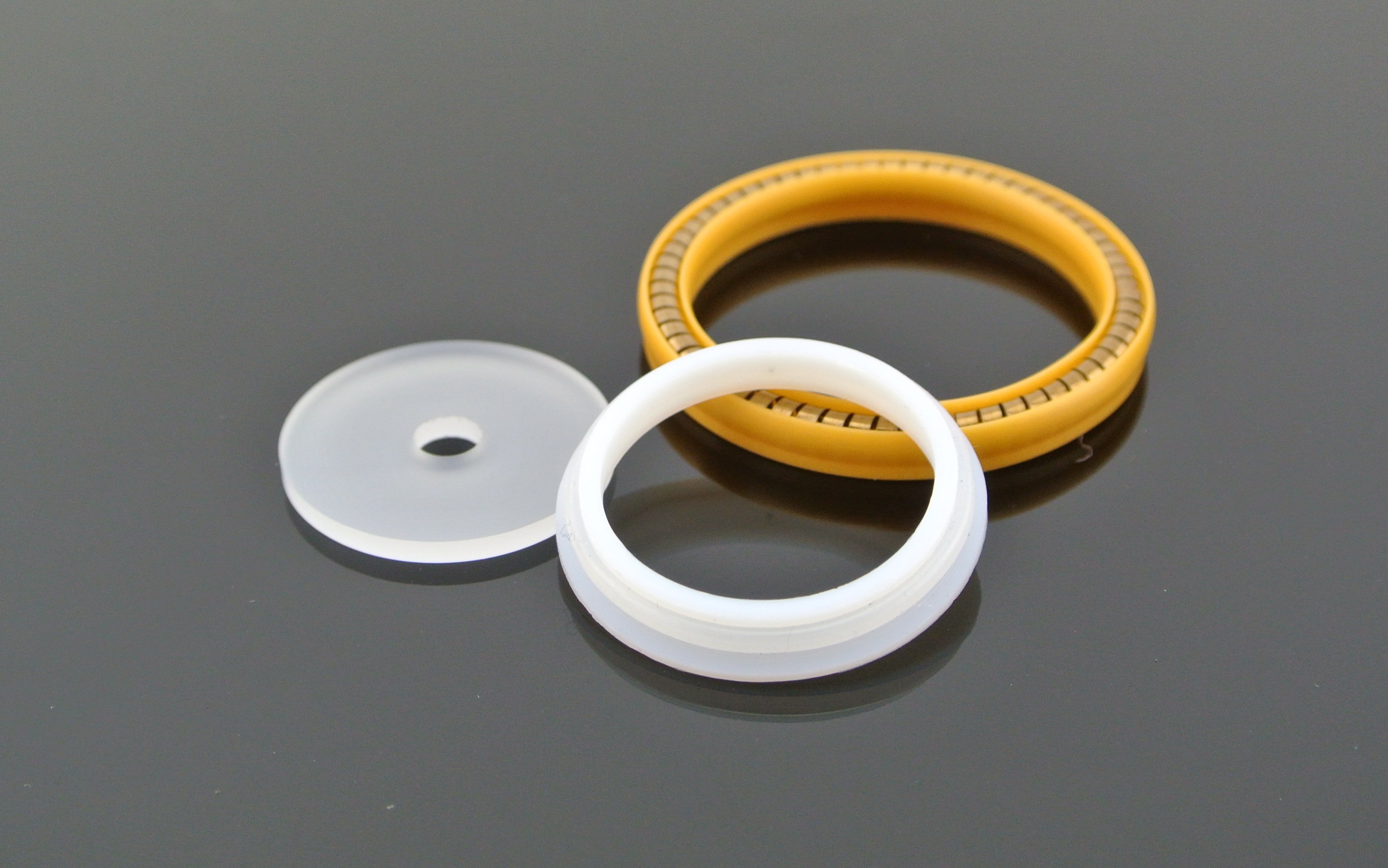In the LNG industry chain—spanning production, storage, transportation, and end-use—systems operate under extreme conditions: -162°C cryogenic temperatures, medium-to-high pressure, and flammable/explosive environments. Conventional seals fail catastrophically here, risking leaks. LNG-specific seals are engineered to safeguard critical infrastructure. This article dissects their structural advantages, core functions, performance superiority over generic seals, and key applications.
I. Structural Design: Engineered for Cryogenic Extremes
LNG seals (e.g., spiral wound gaskets, metal O-rings, C-seals) feature cryo-optimized designs:
- Spiral Wound Gasket (Typical Structure)
- Core Components:
- Metal Windings: Special stainless steel (316L Mod) or nickel alloy (Inconel 625) for strength, resilience, and crush resistance.
- Sealing Filler: Expanded graphite—remains flexible/compressible at cryogenic temps.
- Inner/Outer Rings (Optional): Prevent filler extrusion and aid alignment.
- Design Advantages:
- Cryogenic Toughness: Materials resist embrittlement down to -196°C.
- Thermal Cycling Stability: Withstands repeated thermal shocks (ambient ↔ -162°C).
- Springback Compensation: Metal windings provide controlled resilience to offset flange shrinkage/vibration.
- Extrusion/Blowout Resistance: V/W-shaped windings + rings contain filler under pressure/vacuum.
- Core Components:
- Other Designs (Metal O-Rings/C-Seals):
- Cryogenic Alloys (Inconel 718/625).
- Hollow Profiles: Enable pressure-energized sealing.
- Surface Treatments (e.g., silver plating): Enhance sealing and prevent galling.
II. Core Function: Zero-Leakage Security in Extremes
LNG seals ensure absolute containment across the LNG value chain:
- Seal -162°C LNG, preventing leaks.
- Tolerate Pressure Fluctuations (near-atmospheric to high pressure).
- Compensate for Thermal Stress/Vibration from temperature swings and equipment operation.
- Prevent “Cold Leakage”: Counteract bolt preload loss from cryogenic contraction via active resilience.
- Ensure Intrinsic Safety: Critical for flammable LNG environments.
III. Performance: LNG Seals vs. Conventional Seals
| Performance Aspect | LNG Seals | Generic Industrial Seals | Advantage of LNG Seals |
|---|---|---|---|
| Cryogenic Toughness | No embrittlement at -196°C; retains elasticity. | Rubbers/plastics brittle and crack; standard metals may lack toughness. | Fundamental: Materials remain functional at LNG temperatures. |
| Cryogenic Sealing | Ultra-low leakage (meets ISO 21014/EN 1473); graphite seals effectively. | Rubbers shrink/harden and leak; standard fillers crack or shrink. | Core Superiority: Designed for cryogenic leakage standards. |
| Thermal Cycling Stability | Survives hundreds/thousands of ambient ↔ -162°C cycles. | Degrades after few cycles—cracks, deforms, or fails. | Critical Reliability: Handles frequent LNG plant startups/shutdowns. |
| Resilience/Compensation | Excellent cryogenic springback compensates bolt load loss from cold shrink. | Loses resilience at low temps; fails to compensate. | Anti-”Cold Leak”: Maintains sealing pressure despite contraction. |
| Material Compatibility | Metals/graphite highly compatible with methane; no swelling/degradation. | Rubbers may swell/degrade with hydrocarbons (even FKM). | Safety Foundation: Stable material performance. |
| Fire Resistance | Non-combustible (metal/graphite); meets LNG fire safety norms. | Organic rubbers/plastics burn or decompose in fires. | Fail-Safe: Maintains sealing during fires to delay escalation. |
IV. Key Applications
LNG seals are mission-critical at cryogenic sealing points:
- LNG Terminals:
- Unloading arms (ship-to-shore connections).
- Storage tanks (inner wall joints, roof/penetrations).
- BOG systems (compressors, piping).
- Cryogenic valves/pumps (flanges, stems).
- Liquefaction Plants:
- Core process equipment (heat exchangers, cold boxes).
- Cryogenic pumps/valves.
- Transportation:
- LNG Carriers (cargo containment seals, pump towers).
- Tank trucks (manways, valves).
- Refueling Stations & End-Users:
- Dispensing nozzles/tanks.
- Small-scale vaporizers.
- FLNG/FPSO:
- Offshore liquefaction/storage systems.
Post time: Jul-29-2025

